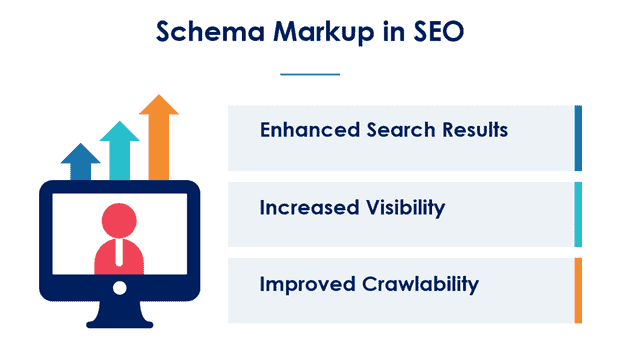Boosting eCommerce SEO with Schema Markup: A Game-Changer for Your Business
As online shopping continues to skyrocket in popularity, standing out in a saturated online marketplace is more crucial than ever. It’s not just about offering excellent products or services anymore; it’s about ensuring your potential customers find you. Enter the realm of Search Engine Optimization (SEO) and, more specifically, schema markup, one of its most potent tools. As an SEO expert, I’ve witnessed firsthand the incredible benefits schema markup brings to eCommerce platforms. In this article, I’ll unravel the mystery of “what is schema markup?” and why it’s a must-have for any eCommerce site serious about SEO.
What is Schema Markup?
Schema markup is a code you place on your website, which helps search engines return more informative results for users. Think of it as a translator between your website’s content and the search engines. It provides explicit clues about the meaning of a page, ensuring search engines understand the scope and display it more prominently.
For instance, if you run an eCommerce store selling books, schema markup can help search engines recognize a page’s particular content. Schematic markup pinpoints this data for search engines, whether it’s a book review, the author’s information, or a publication date. As a result, when users search for specific book-related queries, your website has a better chance of appearing with rich results, such as stars for reviews or price ranges for products.
The Undeniable Benefits of Schema Markup
- Enhanced SERP Presence: Schema markup can lead to rich snippets—those attention-grabbing search results featuring star ratings, images, or prices. This enhanced visibility can boost click-through rates (CTR), driving more organic traffic to your website.
- Improved CTR: Enhanced snippets make your listings more appealing. Users are likelier to click on search results with star ratings or product prices.
- Immediate Trust Factor: When potential customers see star ratings or reviews from your previous clients, they’re more likely to trust your brand and consider purchasing.
- Voice Search Compatibility: As more consumers adopt voice search through smartphones and smart speakers, schema markup ensures your content is easily accessible and can be read aloud accurately.
- Beat the Competition: Surprisingly, many eCommerce businesses have yet to adopt schema markup. Implementing it gives you a competitive advantage, ensuring your products stand out in search results.
Why Partnering with SEO Experts is Essential
Understanding “what is schema markup” is just the tip of the iceberg. Implementing it correctly is the real challenge. This is where partnering with SEO experts becomes invaluable.
- Correct Implementation: Schema markup involves detailed coding. Even minor errors can lead to incorrect display of information or, worse, penalties from search engines. SEO experts ensure error-free implementation.
- Staying Updated: The SEO and schema markup world is continually evolving. SEO experts stay on top of the latest trends and changes, ensuring your eCommerce store remains optimized.
- Measuring Results: An SEO expert doesn’t just set things up and walk away. They continuously monitor performance, track results, and make necessary tweaks to ensure maximum visibility and CTR.
In the bustling world of online shopping, where every click counts, employing schema markup for SEO can make a tangible difference to your bottom line. By understanding schema markup and leveraging the expertise of SEO experts, you can propel your online store to new heights. After all, in today’s digital age, it’s not just about selling—it’s about being seen.
If you’re serious about elevating your eCommerce SEO game, now’s the time to invest in schema markup and partner with the right experts. The future of your online business depends on it.

